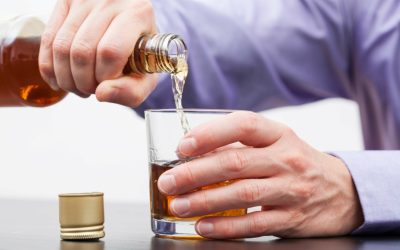Content
Teens who binge drink can experience long-term effects with cognitive impairment, attention, and memory. Among 8th, 10th and 12th graders combined binge drinking remained unchanged, with less than seven percent reporting they have engaged in this level of harmful consumption. Binge drinking has declined 49 percent proportionally from 2013 to 2022 and 67 percent since 1991. An unintended but positive consequence of the COVID-19 pandemic was unprecedented declines in underage alcohol consumption among American teens. In 2022, the rates of underage drinking among students in 8th, 10th, and 12th grades rates remained relatively unchanged and significantly lower than peak years recorded in the early to mid-1990s when tracking of this data began. For more than 30 years the Foundation for Advancing Alcohol Responsibility has been leading the fight to eliminate drunk driving and underage drinking.
- 10% of eighth graders report drinking at some point, and prevalence of alcohol increases with age.
- For kids and teens, that usually means having three or more drinks at one sitting.
If they can speak, try to find out how much they have had to drink in a way that will not encourage them to lie about the amount. You can also check with their companions or the party or drinking establishment where they were drinking to get an idea of how much they have consumed. This article http://landuseratio.ru/t/132633 discusses the dos and don’ts of dealing with a teen who has been drinking. It offers tips on how to respond, how to keep your child safe, and what steps you should take next. If you know an adolescent who is showing the signs of a drinking problem, you should seek help sooner rather than later.
Risks Associated with Teen Drinking
Because their minds and bodies are still developing, teens have different responses to the effects of alcohol than adults. Alcohol is the most commonly used and misused drug among young people in the United States, according to the Centers for Disease Control and Prevention (CDC). The CDC reports that http://scienceblog.ru/2019/10/28/uchenye-predlagayut-vosstanavlivat-khryashhi-v-sustavakh-s-pomoshhyu-specialnykh-inekcijj/ excessive underage drinking is responsible for more than 4,300 deaths among individuals each year. While these signs don’t always indicate a problem with alcohol use, they are red flags that your teenager needs help. Consult with a program that specializes in helping teens with alcohol addiction.
What generation drinks the most?
A report from Berenberg Research shows Gen Z drinks 20 per cent less per capita than Millennials when it comes to alcohol consumption. Not to be outdone, the report also shows Millennials are drinking less than both Gen X and Baby Boomers.
Drinking and driving is more common among teens than you might realize. In a study by the CDC, one out of 10 high school students surveyed admitted to driving under the influence at least once within the past 30 days. Studies show that as alcohol abuse rises among teens, grades decline. If you are concerned about your teen’s drinking, The Recovery Village has a team of caring professionals ready to answer your questions and provide information about resources and treatment services. Contact a representative today to learn more about alcohol recovery. In addition, some adolescents resort to stealing alcohol, either from parents or from stores.
Talk. They Hear You: Why You Should Talk with Your Child About Alcohol and Other Drugs – Fact Sheet
We may receive advertising fees if you follow links to promoted websites. Avoid confronting them when they’re drunk, or late at night when they’ve just gotten home exhausted. Instead, wait until they’re sober and in a more clear and receptive state of mind. It’s also more likely to take place at parties or other social events where parents aren’t present. New drivers are also 300 percent more likely to be in a serious car accident; a danger that’s greatly increased when alcohol is involved. Windle, Michael, et al. “Transitions into underage and problem[…] and 15 years of age.” Pediatrics, April 2008.

